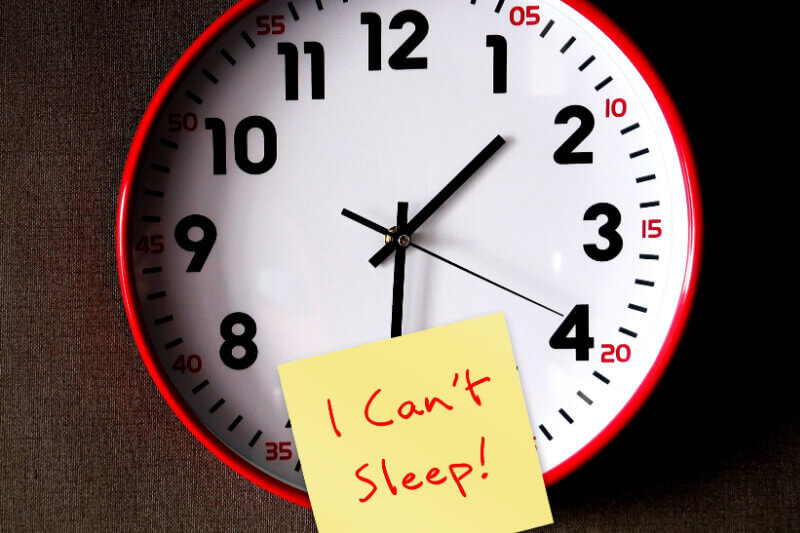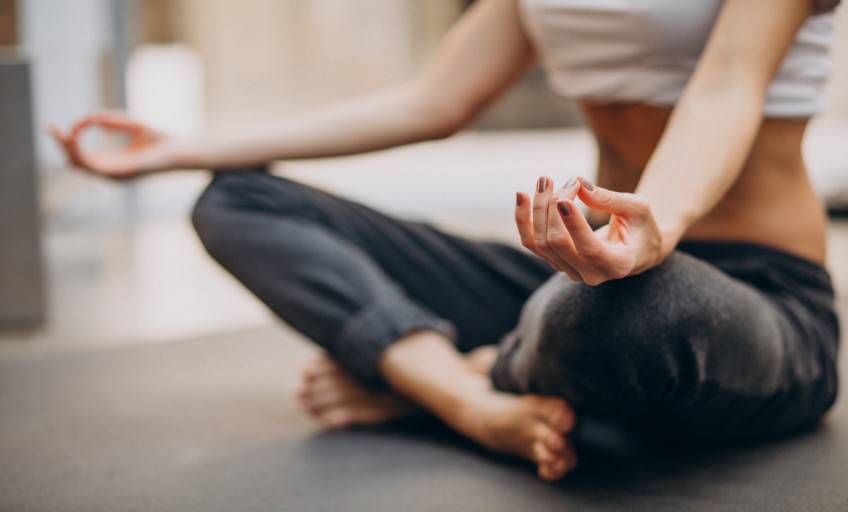Now that you have listed your new year’s health resolutions on paper, do you find it difficult to follow through on them? You have made up your mind to sleep on time. But you end up mindlessly scrolling through your phone, wandering in the dark at home at night, or just shifting on the bed without getting any actual sleep. Don’t worry. You have come to the right place.
Avoid giving up on this year’s resolution using expert advice in fitness, nutrition, and mindfulness. No matter how determined you are to live up to your resolutions, it all starts with getting sound sleep, which can energize you and make you unstoppable. Kaustav Oberoi, a mental health expert, will guide you to start your next day energetically.

You must have heard the old Hindi saying – ghode bech kar sona. Do you know the origin of this idiom? Horse traders earlier used to stay up all night to prevent their horses from getting robbed. Once all the horses were sold, they would sleep like a baby. It indicates how we cannot sleep with something stressing our minds. You need to get rid of all your ‘horses’ before you go to sleep.
You must have tried setting many alarms to get up early in the morning and get an early headstart. But many individuals snooze their alarms and fall back to sleep. Our bodies have a circadian rhythm which prepares us for environmental changes and regulates the time to sleep or eat. Like the alarm clock, our body also has an internal clock located in the hypothalamus of our brain. This hypothalamus manages our body temperature, hunger, thirst, mood and sleep.
Impact of inadequate sleep
Not getting adequate sleep can have serious short-term and long-term health ill effects.
Some of the short-term ill effects can be hypertension, anxiety, trouble concentrating, and mood swings.
Some long-term ill effects can be high blood pressure, weight gain, risk of heart disease, diabetes, hypertension, obesity, and weakened immunity.
Benefits of sleeping
Getting adequate 7-8 hours of sleep can refuel you and help you achieve the new year resolutions you have set aside for yourself. The benefits of getting enough sleep are as follows:
- Adequate sleep is immensely beneficial for your mental health. It improves productivity, concentration, and focus, sharpens your mind, and enhances memory and retention.
- Excess sleep can promote holistic health and strengthen your heart, supporting a healthy immune system. Therefore, sleep and rest are two pillars of a healthy lifestyle.
- Prioritizing sleep can also improve personal and professional relationships and social interactions.
- Getting proper sleep can prevent weight gain and aid you in weight management.
- A good night’s sleep improves your metabolism, makes you swift and helps you complete tasks on time.
Ways to get good sleep

Get a good night’s sleep to achieve all your resolutions this new year. Here is how you can maintain a proper sleep schedule:
- Stay physically active in your daily routine to get better sleep. Exercise every day for at least 30-60 minutes, as it helps produce melatonin, a sleep hormone which wears out the body’s energy. Being active could mean taking a walk, hitting the gym, or just doing household chores. An evening walk can be an effective tool for a good night’s sleep. However, avoid exercising close to your bedtime.
- Take a light warm shower to relax your body and improve the quality of your sleep.
- Skip daytime or afternoon naps or take short naps which do not exceed 30 minutes.
- Avoid late-night snacks or heavy dinners, which might cause discomfort. Ensure you have dinner at least 3 hours before bedtime, which gives your body ample time to digest food and doesn’t interfere with your sleep.
- Avoid nicotine, caffeine, or alcohol consumption before you sleep, as these can keep you up. Studies show that having coffee even 6 hours before bedtime can keep you awake by over an hour. If you think coffee doesn’t affect you, know that it might not affect your bedtime, but it will worsen your sleep quality and affect your energy levels the next day. Give yourself at least 8-10 hours between your last cup of coffee and your bedtime. So, if you sleep at 11 p.m., don’t have coffee after 3 p.m. This way, you can enjoy the alertness that caffeine brings, and you can still have good quality sleep.
- A warm cup of milk or chamomile tea can also put you into a good slumber. Banana contains magnesium, which can promote a good night’s sleep. Oatmeal is also a healthier option high in carbs which induce drowsiness and is a known source of melatonin.
- If you keep twisting and turning in your sleep, create a relaxing environment in your bedroom. Keep your room cool, dark, and quiet, as any exposure to light or sound can disrupt your sleep if you are a light sleeper. You can use scented candles or listen to calming music to help you fall asleep. Try reading, journaling, or meditating.
- If you have constant thoughts running through your mind, jotting down your worries and thoughts can help you avoid overthinking and sleep stress-free. You can even set your priorities for the next day to organize your day.
- Our biological clock maintains our sleep-wake cycle and seeing the sun automatically wakes our body up. Technologies like television, laptops and phones emit a blue light which gives the same effect. Our body naturally starts getting ready for sleep once the sun goes down, but this blue light confuses our body, so it doesn’t know whether it is time to wake up or go to sleep. This disrupts our sleep cycle and affects our sleep quality. So, put away all your devices at least 1 hour before bed to prepare yourself for sleep.
- Ensure that you are comfortable. Set the air conditioner or the room at an ideal temperature so you don’t have to get up from your sleep to adjust it.
- If you wake up in the middle of the night and find it difficult to sleep, get rid of bright lights or loud sounds. You can also meditate and try some breathing exercises like the 4-7-8 breathing. You will be tempted to open the phone and start scrolling, but avoid this.
- When you wake up in the morning, let sunlight pour into your room. This exposure to light acts as a cue for the brain cells to wake up.
Stay healthy with the Activ Living Community – your everyday health expert. Stay tuned for more lifestyle and nutrition-related information.





 1800-270-7000
1800-270-7000









